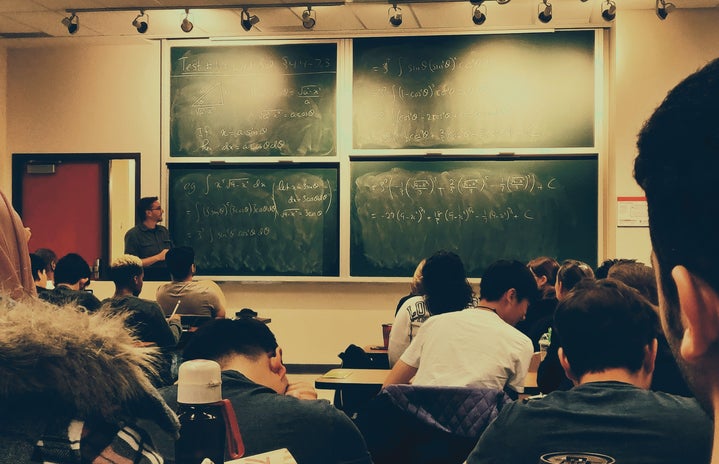It is Monday night. The clock is ticking. Your midterm is tomorrow at eight in the morning. You are working frantically to study four chapters of material in 267 PowerPoint slides. Where did it all go wrong? Well, if you recall, last Monday you spent five hours scrolling through TikTok, followed up with a seven-hour nap, saw the reminder in your phone for the upcoming midterm, took a trip to the mall for some Starbucks, deleted the reminder in your phone to study and then slept for nine hours. This would not have been a problem, but then you repeated this for the next seven days, leading to today. Sound familiar? Well, that is procrastination for you.
What is procrastination?
Procrastination is knowingly going against better judgment and putting off important tasks. It has absolutely nothing to do with laziness but instead is a habit of believing you will work better under pressure at the last final second before the due date. You do have the fundamental desire to do a task but for the life of you cannot force yourself to start it. Do not worry, you are not the only one guilty of this. You may be the person with a million reminders on your phone or an extensive schedule, but you still find yourself delaying the inevitable by wasting time. But why?
Why do you procrastinate?
You want instant results. You lack patience so when you open up your books to study for an exam or open a Word document to start an assignment, you expect to be done instantly. In the present, it is hard to do something for your future. You give yourself a false sense of security by believing you have a lot of time to complete something or that you will be motivated to do a task in the future. You have a habit of putting things off and it is a result of not understanding the lack of time you have or not knowing the extent of every task that needs to be done. With the freedom to make choices and decisions, it is difficult to recognize the importance of time and priority. Your procrastination may also be a result of self-doubt. You do not believe you can accomplish a task, so you do not even try to work on it until you are in panic mode and have to try at least.
How to stop procrastinating.
Setting up a schedule with rewards does not help everyone. Instead, start by trying to understand your priorities and what needs to be done. Seeing pages upon pages of notes can be intimidating so you can start by breaking down a task into smaller achievable goals. Make topics that you do not understand or are unclear about urgent. Focus on what you would do next. When writing an assignment, you would typically open a Word document, then type your name, type the date and so on and so forth. Eventually, your small actions will motivate you to continue. A major factor is removing roadblocks. If you find yourself spending a lot of time on social media, try putting a complicated password on your phone so you will be too lazy to unlock it.
Hopefully, you did not read this article to avoid studying for an exam or starting an assignment. Procrastination is a real struggle and with numerous distractions around, it is easy to get overwhelmed and stray away from your goal. Thank you for reading about why you may procrastinate and how to actively prevent it.


